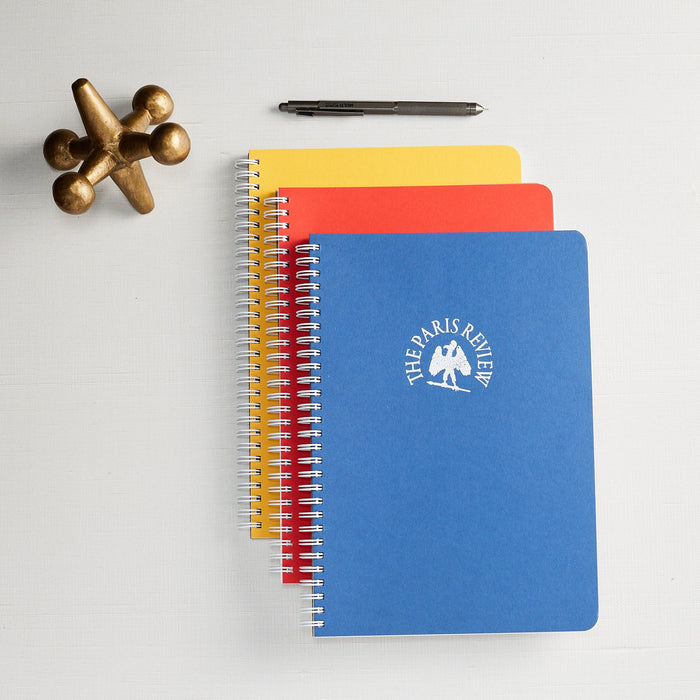Journals of notable people throughout history from Albert Einstein to Charles Darwin, Mark Twain, Leonardo da Vinci and more are studied to this day. With all our easy access to technology, many successful people in every discipline still choose to keep journals. Musicians like Eminem and Lady Gaga openly discuss their usage of handwritten lyrics and notes in physical notebooks to create their extensive discographies of popular songs.
Actress and activist Emma Watson told Vogue magazine about her habits of writing poetry and other personal thoughts in a personal diary. Popular entrepreneur, investor, and author Tim Ferriss swears by his journaling habit as part of his foundation of success, so does entrepreneur and podcaster Pat Flynn. Fitness gurus like Ben Greenfield and Annie Mist Thorisdottir also promote the usage of daily personal journals to getting them where they are.
So, what’s the draw?
Let’s take a deep dive into the effects reported by these notable people, those around them, and others who regularly journal. This makes it easier to understand the powerful benefits you can achieve with something as simple as a pen and notebook. As English author Edward Bulwer-Lytton explained in the 1800s – “the pen is mightier than the sword.”
Documenting the Hard Times
Several people above, including Watson, reported turning to journaling to help her get through hard times. She’s certainly not alone in this pursuit – you may remember “The Diary of a Young Girl,” written by Anne Frank as her family hid out during the Nazi occupation of the Netherlands during World War II. It since became one of the most well-known pieces of content documenting one of humanity’s greatest tragedies. It’s not uncommon for people of all ages to escape harsh realities in a book, and many of us (this writer included) dedicate our careers to documenting history as it happens.
Journaling is recommended by mental health professionals for the ability to process difficult emotions, like intense fear, anger, and grief. These medical professionals often recommend a mental exercise like writing a letter to the person you’re experiencing feelings about and never sending it. Although the other person never hears the words, it materializes them to get them off your mind, and that’s what truly matters for your ability to get over traumatic events or dramatic people.
The next time you have something to say to a loved one, boss, teacher, or someone else in your life, write about the experience in a journal and flip to the next page. You’ll be surprised at the therapeutic benefits of physically info dumping and moving on.
Getting Things Done
One of the biggest problems we experience in life is getting things done. There are infinite possibilities in life, and we only have so much time to make choices and execute on them. It’s not uncommon for people to find themselves without the necessary time to complete essential tasks. This is where goalsetting comes into play, which is another common reason notable people keep journals. In fact, every successful person keeps a daily schedule, although only the cream of the crop does so in a tangible written notebook.
Putting pen to paper helps you process the things you need to do, and even the loss of internet, electricity, or other such failure of technology won’t erase what’s written down. This written documentation keeps you on task under any circumstances and gives you a physical reminder of what you’ve done (and still need to complete). Many business and political leaders also find it useful to physically cross items off the list when they’re done.
Even if you’re just making grocery and shopping lists at the start, a physical journal filled with notes can keep you on task. This is how productive people set goals and accomplish seemingly impossible tasks. It’s not a superpower, just organizational skills enabled by stringent journaling habits.
Staying Positive Under Pressure
Yogis and other meditational experts agree that journaling has positive benefits, but they focus on a different version than those above. A gratitude journal is proven to improve your mindfulness and keep you healthy, happy, and wise. There’s a simple theory behind why keeping a gratitude journal works – it forces your brain to focus on positive things in your life. As you repeat things you’re thankful for, you reform and train your brain to focus on those things and become happier.
Gratitude journals have been used in therapy for a wide range of mental, physical, and emotional afflictions, including veterans with PTSD, children, the elderly, domestic violence survivors, and more. We even have a holiday dedicated to the practice of being thankful for (and it’s notably easier to prepare for Thanksgiving dinner with a written journal).
Athletes, dieticians, doctors, psychologists, and other professionals in health-related fields will often advocate for practicing gratitude regularly. In fact, this daily habit of gratitude has been shown to improve sleep, mood, relationships, and overall life satisfaction. It doesn’t take much more than expressing positive thoughts on a piece of paper with a pen, and you can start today. Make a list of things you’re grateful for today and do the same when you wake up tomorrow. You don’t even have to post it as your Facebook status – these daily affirmations are just for you.
Write Your Own Life Story
We all have our own unique perspectives, thoughts, and experiences in this world. Everybody brings something unique to the table, and you can start documenting your own personal story today. Whether it’s a list of things you’ve done or achievements you dream of achieving, your life is your story to tell. Keeping a journal helps you remember what was going through your head at different points of your life. It helps you analyze your own thoughts and find commonalities and patterns.
As you age, you’ll regret the journals you didn’t write more than the ones you did. In fact, people often appreciate seeing the inner thoughts of their younger selves or loved ones. If you had one piece of advice to give a version of yourself in the past or future, what would it be?
Use that prompt to get started with your own personal diary today.




Comments
Leave a comment